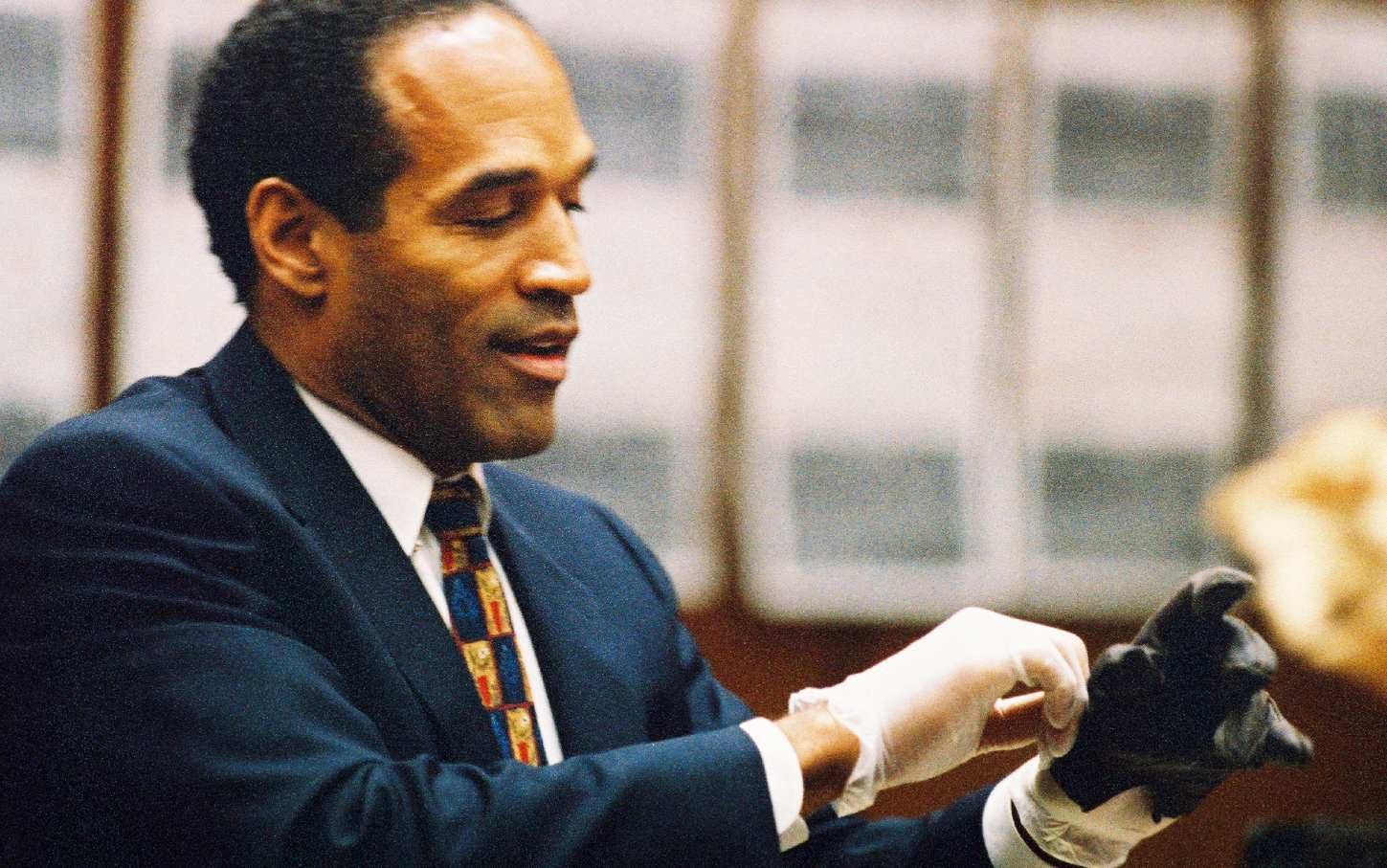
[ad_1]
The president’s rigid ideological commitment has led him to shut out government dissenters—and his own voters.

On Tuesday, Joe Biden tried mend fences with Muslim Americans by inviting members of the community for a meeting, but the event was a disastrous display of the president’s disregard for Palestinian life. Biden’s first problem was that, as a result of his unwavering public support for Israel’s war in Gaza (sporadically tempered by rhetorical but ineffectual criticism), very few Muslims wanted to meet him. Most of his invitations were turned down; in the end, the event had only six attendees. One guest, Dr. Thaer Ahmad, who has recently been in Gaza providing medical aid, left after five minutes, saying he wanted to show the president “the pain and the mourning that my community was in.” Ahmad’s action was partly motivated by the fact that Biden continues to ramp up military aid to Israel. Ahmad is returning to Gaza to provide medical assistance, knowing full well he could be killed by bombs supplied by his own government—a situation he finds painful to think about.
According to NBC News, another guest, Dr. Nahreen H. Ahmed, “was taken aback when she showed Biden prints of photos of malnourished children and women in Gaza—to which Biden responded that he had seen those images before. The problem, the doctor said, was that she had printed the photos from her own iPhone.” Biden was clearly making up the fiction of having seen the pictures before as a way not to have to look at them. As Ahmed rightly notes, Biden’s behavior “speaks volumes to the dismissive nature of the administration when it comes to strong-willed action towards a permanent cease-fire or, at a bare minimum, a red line on the invasion of Rafah.”
Biden’s callousness at that meeting is all the more striking because, when dealing with non-Palestinians, the president has long been famous for his empathy and fellow-feeling, especially for those distressed by death. Biden is a great humanitarian—unless the humans are Palestinians.
In holding fast to his position that there should be no red lines for Israel, Biden is shutting his ears to not just Muslim Americans but also the large majority of his own voters, and a growing body of dissent inside his own administration.
According to a Gallup poll released on March 27, 75 percent of Democrats oppose Israel’s war in Gaza (against only 18 percent who support). Among independent voters, 60 percent oppose the war, while 29 percent support it. Even among Republicans—the one cohort that is most behind Israel—support for the war is shrinking. Currently, 64 percent support and 30 percent are opposed, but in November, 71 percent supported and 23 percent opposed.
As the war in Gaza rapidly loses support among the American people, especially among the vast majority of Biden supporters, the president has latched on to a strategy of crocodile tears. Biden wrings his hands in public and private about civilian casualties, while continuing to arm Israel with the most lethal weapons short of nuclear bombs.
Current Issue

As Isaac Chotiner of The New Yorker noted on Tuesday:
For months, the White House has criticized Israel’s military campaign in Gaza, with President Biden himself calling the offensive “over the top” and the bombing “indiscriminate.” But the President has continued to insure that Israel is supplied with weapons and aid. This mixture of rebuke and support has led to increasing confusion about what exactly his Administration is trying to accomplish.
To understand Biden’s incoherent policy, I spoke on Monday with Annelle Sheline, who recently resigned in protest from her post as foreign affairs officer at the Office of Near Eastern Affairs in the Department of State’s Bureau of Democracy, Human Rights and Labor. Resigning as a matter of principle is strongly discouraged in the American government and will foreclose any future career in the State Department. But Sheline told me that she’s not alone in believing that Biden’s carte blanche to Israel is contrary to the interests and values of the United States.
“People tend to be with the State Department because they believe in the United States or what the US purports to stand for,” Sheline told me. “Many people who had survived the Trump years really welcomed what this administration said they were going to advocate for as far as participation in international institutions, reestablishing the commitment to the rule of law, and just working to support allies. I think people were just extremely horrified to see the ways in which all of that went out the window.”
The simmering dissent inside the administration has run into the same fate as the wave of public protests and polls showing that Biden’s policy is unpopular: the brick fortress of Biden’s ideological commitment to Zionism. As Sheline notes, the relationship between the USA and Israel is obviously “something that is decided at the very top. And until the president wants to reimagine that relationship, we’re not likely to see much change.” Biden has repeatedly declared, “I’m a Zionist.” The top advisers he has surrounded himself with—notably, national security adviser Jake Sullivan and deputy adviser to the president Brett McGurk—share his Zionist commitment.
In a Mother Jones article from December, Noah Lanard has documented Biden’s history as an extreme pro-Israel hawk going back decades. In a striking anecdote, Lanard recounts that Biden’s indifference to Palestinian life once even shocked right-wing Israel Prime Minister Menachem Begin. In 1982 Begin came to Washington to defend Israel’s invasion of Lebanon and found Biden, then the junior senator from Delaware, was the most strident defender of the controversial war, which even President Ronald Reagan eventually opposed.
Ad Policy
As Lanard recounts:
The New York Times reported at the time that Biden told Begin that he was not critical of the Lebanon invasion. After returning to Israel, Begin provided more detail to the Israeli press by describing how a young senator had given an “impassioned speech” during a private meeting with members of the Senate Foreign Relations Committee. Begin said this senator argued that Americans “wouldn’t pay attention as to whether men, women, or children were killed” if they had to retaliate against a comparable attack from Canada. The prime minister claimed that he’d criticized the senator for devaluing civilian life. Subsequent reporting confirmed he was referring to Biden.
Popular
“swipe left below to view more authors”Swipe →
This account of Biden’s emotional and unreasoning attachment to Zionism was strikingly supported by an interview Isaac Chotiner did in The New Yorker with Aaron David Miller, a Carnegie fellow who worked in the State Department from the Jimmy Carter administration to George W. Bush’s presidency. Miller noted that “when Biden gave the speech on October 10, you watched the tears well up in his eyes. He talked about the black hole of loss. He’s conflated the tragedies in his own personal life with what Israelis felt on that day.”
Miller then added, “Do I think that Joe Biden has the same depth of feeling and empathy for the Palestinians of Gaza as he does for the Israelis? No, he doesn’t, nor does he convey it. I don’t think there’s any doubt about that.”
Joe Biden has created an ideological bubble around himself. He is so firmly entrenched in his Zionist worldview that for many months nothing could shake it, not protests from government officials, not popular activism, not sinking poll numbers—not even images of maimed and starving children.
To date, Biden’s response to criticism has been to ratchet up his public and private criticism of Israel without changing policy. But this week for the first time there emerged evidence that Biden was starting to put enough pressure on Israel to actually change the conduct of the war. The presidential election is drawing ever closer—and the prospect of losing an election concentrates the mind of a politician like nothing else. In the wake of strong protest votes in the primaries of swing states such as Michigan and Wisconsin, Biden has started to suggest he might exact a real price from Israel.
On Thursday, The New York Times reported, “President Biden threatened on Thursday to condition future support for Israel on how it addresses his concerns about civilian casualties and the humanitarian crisis in Gaza, trying for the first time to leverage American aid to influence the conduct of the war against Hamas.” The newspaper added a significant proviso: “But the White House stopped short of directly saying the president would halt arms supplies or impose limits on their use, as fellow Democrats have urged.” That proviso made it sound like Biden was playing his usual game of threatening more in words than he was prepared to do in action.
Despite the cautionary note, Israel’s government for the first time took Biden seriously enough to adjust policy. Barak Ravid of CNN reported, “The Israeli security cabinet approved the opening of the Erez crossing with the Gaza strip for the first time since October 7 in order to allow more humanitarian aid to go in.”
Months of protests have finally broken through Biden’s Zionist bubble. But this new development is just a start. It is going to take much more to pressure Biden to develop a sane foreign policy that both ends the current conflict and creates a just settlement of equality for Palestinians and Israelis.
Thank you for reading The Nation!
We hope you enjoyed the story you just read. It’s just one of many examples of incisive, deeply-reported journalism we publish—journalism that shifts the needle on important issues, uncovers malfeasance and corruption, and uplifts voices and perspectives that often go unheard in mainstream media. For nearly 160 years, The Nation has spoken truth to power and shone a light on issues that would otherwise be swept under the rug.
In a critical election year as well as a time of media austerity, independent journalism needs your continued support. The best way to do this is with a recurring donation. This month, we are asking readers like you who value truth and democracy to step up and support The Nation with a monthly contribution. We call these monthly donors Sustainers, a small but mighty group of supporters who ensure our team of writers, editors, and fact-checkers have the resources they need to report on breaking news, investigative feature stories that often take weeks or months to report, and much more.
There’s a lot to talk about in the coming months, from the presidential election and Supreme Court battles to the fight for bodily autonomy. We’ll cover all these issues and more, but this is only made possible with support from sustaining donors. Donate today—any amount you can spare each month is appreciated, even just the price of a cup of coffee.
The Nation does not bow to the interests of a corporate owner or advertisers—we answer only to readers like you who make our work possible. Set up a recurring donation today and ensure we can continue to hold the powerful accountable.
Thank you for your generosity.
Jeet Heer
Jeet Heer is a national affairs correspondent for The Nation and host of the weekly Nation podcast, The Time of Monsters. He also pens the monthly column “Morbid Symptoms.” The author of In Love with Art: Francoise Mouly’s Adventures in Comics with Art Spiegelman (2013) and Sweet Lechery: Reviews, Essays and Profiles (2014), Heer has written for numerous publications, including The New Yorker, The Paris Review, Virginia Quarterly Review, The American Prospect, The Guardian, The New Republic, and The Boston Globe.
More from
Jeet Heer 

World / April 5, 2024 What It Takes to Break Joe Biden’s Zionist Bubble The administration’s blatant double standard demonstrates that the new “liberal international order” is…
Jeet Heer

Biden is for pushing de-escalation—but Israel could still go rogue.
Jeet Heer

The accused killer won and lost in court depending on his bank account.
Jeet Heer

Brodner, a frequent contributor to The Nation, is both a great caricaturist and a great portraitist.
Comment
/
Jeet Heer

The problem isn’t that the former president is broke but that he’s for sale.
Jeet Heer

Kennedy’s newly picked running mate, Nicole Shanahan, reflects the necro-futurism of Big Tech.
Jeet Heer
[ad_2]